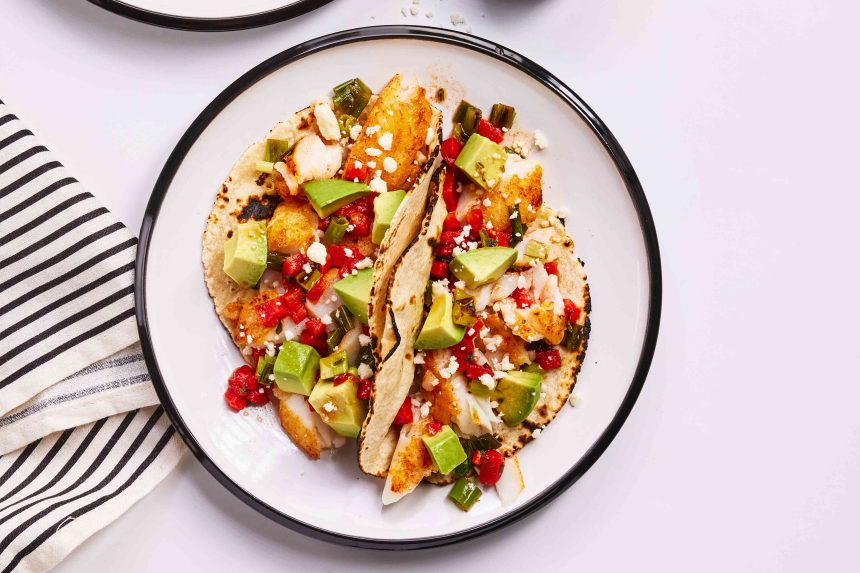Gut health has been leading the charge as one of the most buzzed-about health and nutrition topics—and for good reason. Experts are continually touting the importance of maintaining a healthy gut, but why does it matter so much? Here we’ll get a glimpse into why you should care about the health of your gut microbiome, how it’s linked to overall health, the major role that diet and nutrition play in supporting a healthy gut, and finally, how to dream up delicious dinners your whole family—and your gut—will beg for again and again.
Why Is Gut Health So Important?
Researchers are gaining more evidence to prove that our gut health impacts far more than just digestive health (for which it’s also very important). What scientists are looking at specifically when it comes to gut health is something called the gut microbiome, a group of over a trillion microorganisms that lives mostly in the large intestine. These microscopic critters that make up the gut microbiome are mostly bacteria, but some strains of yeast and viruses live there too.
The balance and well-being of the gut microbiome has been found to impact several different systems throughout the body. Here’s just a few:
Gastrointestinal Function
The gut microbiome does play a major role in maintaining healthy digestion and regularity. From a metabolic standpoint, the biome is super important, creating specific amino acids, vitamins, and minerals, including the ever-important calcium. It also helps the gastrointestinal system detox any unwanted chemicals or toxins from food.
Brain Health
The discovery of the gut-brain axis has rocked the world of researchers and healthcare professionals alike, and it’s almost as buzzworthy a word as the gut microbiome itself these days. Our intestines are lined with nerve cells, and these nerve cells communicate directly with the central nervous system, including the brain. This bidirectional communication pathway comprises the gut-brain axis and has been found to have significant influence on our mind and mood. In fact, studies have shown that the health of our gut can be tied to mental health disorders like anxiety and depression, as well as overall cognitive function and ability to manage stress.
Immune Health
An essential function of the gut is to promote a healthy immune system. A healthy, thriving biome promotes healthy immunity by maintaining an optimal ratio of beneficial to harmful bacteria. This decreases the odds that the harmful ones can take hold and make you sick. Plus, the gut microbiome regulates many different types of immune cells throughout the body.
Chronic Disease
Fascinating research has also found that the gut microbiome is intimately tied to the expression of many chronic diseases. Just some of these include rheumatoid arthritis, type 1 and 2 diabetes, irritable bowel syndrome, inflammatory bowel disease, liver disease, kidney disease, and heart disease.
How to Make Dinners That Boost Gut Health
If you’re a food lover, you’ll be happy to know that the easiest and most effective way you can positively impact your gut microbiome is to eat—that said, food choices do matter. Here are some of the gut-healthiest food groups to prioritize when you can, and a few to limit and enjoy more mindfully, in order to keep your gut in balance.
Stock up on more:
- Fiber and Prebiotic Foods: Fiber in general will help you maintain healthy digestion, regularity, and an overall healthy gut. Prebiotics, however, are a kind of fiber that are particularly beneficial to your biome as they serve as food for your healthy bacteria. Great options to choose from include oats, onions, carrots, garlic, broccoli, berries, apples, flaxseed, mushrooms, leafy greens, whole grains, tomatoes, legumes, and honey.
- Probiotics: Probiotics are beneficial bacteria that help to boost the population of the healthy, hardworking microorganisms in your microbiome. Many of these food options will be fermented and some delicious sources include yogurt, kimchi, kefir, miso, tempeh (fermented tofu), kombucha, buttermilk, sauerkraut, and certain types of pickles.
- Anti-Inflammatory Foods: To maintain a healthy gut, keeping inflammation at bay is key. Inflammatory foods can irritate the microbiome and impact how well it can function. Anti-inflammatory foods, on the other hand, tend to be full of vitamins, minerals, plant compounds, and/or omega-3 fatty acids. Sources include nuts, seeds, beans, onions, olives, dark green veggies, berries, apples, tea, pomegranates, herbs, spices, salmon, anchovies, sardines, hemp hearts, and avocados.
Be mindful of:
- Alcohol
- Added sugar
- Processed foods
- Red meat and processed meat
- Fried foods
- Artificial sweeteners
Given that inflammation is such a nuisance when it comes to gut health, steering clear (when possible) of generally inflammatory ingredients can make a big difference.
Gut-Healthy Dinner Recipes
These five dinner ideas combine various (or all!) gut-healthy nutrients to create delicious meals you and your family will want to add to your regular rotation. Once you learn what you like, how to craft gut-healthy dishes, and what works for your household, riff on these meal ideas to make them yours.
Kimchi Fried Rice
Cara Cormack
You may not want to go back to your old fried rice recipe—or call for the usual takeout—after adding chopped kimchi, a flavorful Korean fermented cabbage. The tang of the probiotic-rich kimchi elevates every savory bite of rice. The usual suspects of fried rice, including garlic, onion, scallion, are incredible sources of prebiotics to help your gut flora thrive. Opt for brown rice to level-up the fiber content here, and add in cooked egg, shrimp, chicken, edamame, tofu, or your favorite protein for heartiness.
Add chopped and sautéed kimchi to these delicious fried rice recipes:
Fish Tacos With Greek Yogurt Crema and Avocado Salsa
It’s time to introduce a few easy, gut-boosting ingredients to Taco Tuesday. Fish tacos are always a crowd-pleaser, and any fish will do here. Salmon (super-rich in omega 3s), shrimp, tilapia, cod, swordfish, tuna, and even frozen fish sticks. Up the probiotics by using plain Greek yogurt instead of the usual drizzle or dollop of sour cream (sour cream is great, but this is an unbelievably easy alternative with big nutritional returns). Try a homemade yogurt crema made with full-fat, plain Greek yogurt, lime, garlic, paprika, and a tiny bit of milk to thin it out. Finally, try a fresh and chunky salsa of tomato, avocado, garlic, and onion that will cover all your prebiotic and anti-inflammatory bases while adding serious flavor.
Other gut-healthy fish taco accompaniments? Try a zesty probiotic slaw, or serve alongside a big batch of black beans with tons of protein and fiber.
Miso-Marinated Salmon With Veggies
Hello, miso marinade! The umami punch of miso not only provides probiotics but takes the flavor of the salmon in this dish to the next level. Salmon is a highly anti-inflammatory food due to its omega-3 content. Quinoa brings the prebiotics, and any veggies you choose to roast or sauté to accompany this dish will provide micronutrients, antioxidants, and anti-inflammatory plant compounds to round it all out.
Use this simple, sheet-pan salmon recipe below as a blueprint, and marinate your salmon either this mouthwatering miso-ginger marinade or this white miso sauce that also pairs well with pasta.







